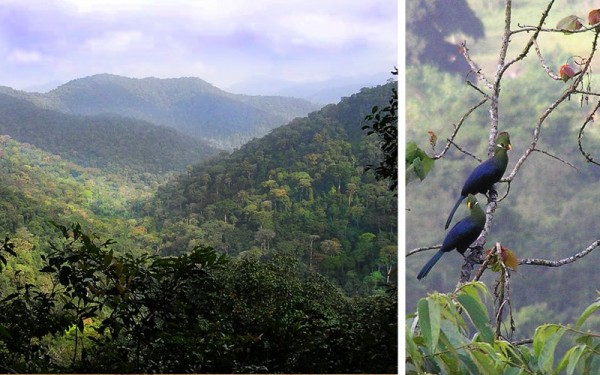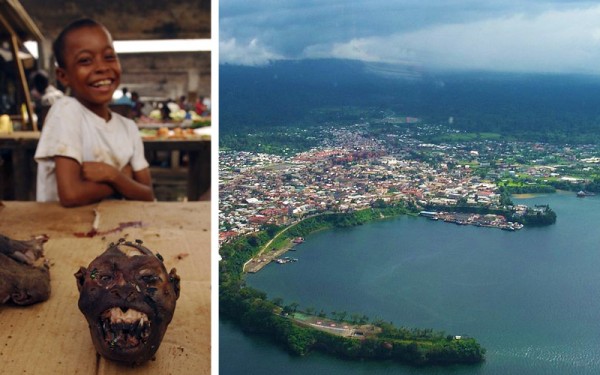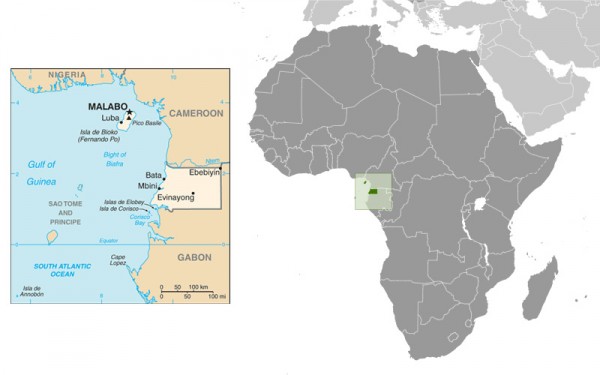
Monte Alen | Yellow-billed Turacos
My riding instructor invited me hunting when I was 15 years old. The thought of riding through France’s foggy woods seemed romantic, adventurous, and disarmingly elite. I desperately wanted to say yes, but I had a squeamish feeling I just couldn’t shake. Bottom line? I didn’t want to kill my dinner and I didn’t want to watch other people kill their dinner. Thankfully, I didn’t have to. I was surrounded by supermarkets, cafes, street vendors, and – just down from our house – carrot and mushroom farms. I could eat whatever I wanted, whenever I wanted. I said no. The closest I ever got to hunting was to pluck a carrot from the farm. Illegally. It was the biggest carrot I’d ever seen but, thanks to a lack of running water and guilt, it tasted like dirt.
In Equatorial Guinea, killing dinner is not always a choice. The rural people are known for hunting and fishing for their dinners because this is the cheapest and most available way to eat. Whole fish [Recipe], crustaceans, and various small animals are sold at the market – piled on little more than cardboard lined tables. The smile on this boy’s face says it all… “This is my normal.”

Meat market | Malabo Harbour, Bioko Island
Game is typically grilled, stewed, or fried and served with porridges – either gari (made from cassava flour) 0r thick millet porridge [Recipe]. Filling and affordable, porridge is also served for breakfast.
As far as vegetables go, they eat all manner of dark greens – anything from spinach, and kale, to more exotic fare, like sweet potato and cassava leaves. Okra is grown and enjoyed stewed with hot peppers and curry [Recipe]. Peanut sauces reign supreme, as in most of west and central Africa.
If you have a sweet tooth, go for a piece of fresh fruit. You’ll be right in line with the people of Equatorial Guinea.




13 Comments